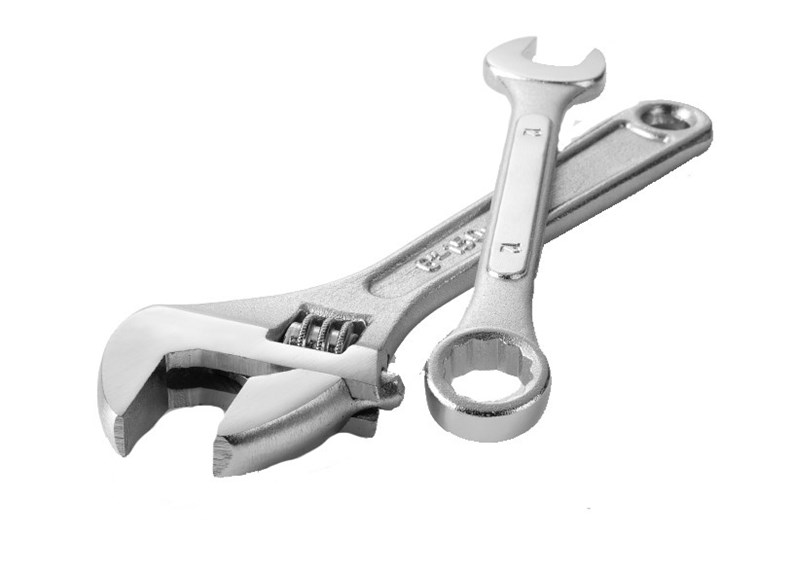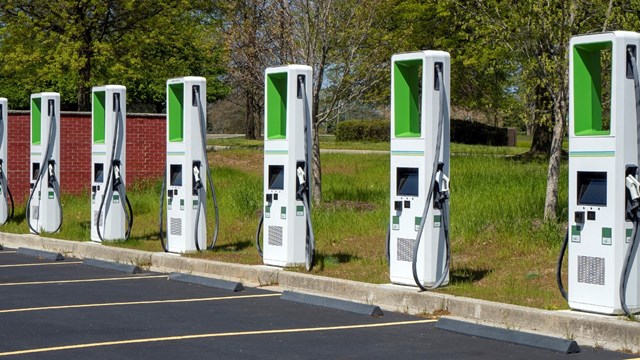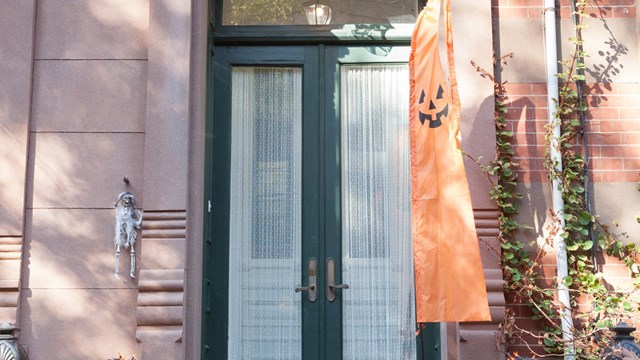People are pretty rough on parking lots. Not only do we drive on them, but we leak oil and transmission fluid on them, pour salt on them when it snows, and leave it there well into spring. Snow plows and heavy garbage dumpsters gouge and scrape blacktop and asphalt surfaces. Cracks go ignored, and few people care when pavement gets stained or faded.
Not that blacktop needs all that much nurturing, of course. Sure, everyone walks all over it, but that's what's it's made for (you could say that's its "lot" in life), but your community's parking lots and other paved surfaces do require a little attention. Failing to do so can result in unsightly conditions, safety hazards, and costly repairs down the road.
Taking a Crack at Repair
According to Richard C. Reilly, a pavement contractor based in Brielle, your parking lot's pavement should be the same as what's on the New Jersey Turnpike. "Normally speaking, the pavement that should be used within a condo community for the roadways and parking lots should be exactly what's used on the state highways and everything else in New Jersey," Reilly says.
That means using what's known as an I-5 Surface Coarse Mix. This has more stone and a higher aggregate (which is the strength of the material) than you'd see on, say, a tennis court. Obviously, the surface has to be strong enough for cars to drive on it, and a soft tennis court won't cut it.
When it comes to maintenance, crack repair is key. According to Thomas Eosso of Eosso Brothers Paving in Matawan, pavement starts deteriorating as soon as it's laid down. Key among the factors that play a part in that deterioration is the weather.
"If the ground is expanding and contracting a lot in the winter, the pavement swells," Eosso says. "When it thaws, the pavement drops back down, and a lot of times that causes cracks."
Reilly says other contributors to deterioration are the solvents and corrosive chemicals that routinely come into contact with paved surfaces. "Anything that leaks or gets out of a car—transmission fluids, break fluids, gas, oil—anything like that will eat it up," he says. Reilly also names weather and the elements as major contributors to pavement damage, as well as salts and other materials used for snow melting, but he says that, perhaps surprisingly, it's solvents that are the primary culprit.
Signed, Sealed, Delivered
Properly sealing the surface of a parking lot is a vital aspect of keeping it—or any paved surface—in good condition. Without a seal to protect the pavement from those nefarious elements and solvents, the lot could be seriously damaged after just a few years of normal wear-and-tear.
"Although most driveway surfaces and parking lots use just normal asphalt, it's still important to keep them looking new by fixing cracks and making repairs," says Leonard Liberto of Rusling Paving in Trenton. "With driveways and parking lots, we give them a couple of years and tell them to put a sealer on it to help preserve the asphalt."
Eosso says the sealer isn't needed sooner than that because the fresh pavement will have "plenty of oils in the mix" to protect the surface in those first two years. After that however, maintenance becomes more of a concern. "In the second year you would seal coat the parking lot," Eosso says, "and then every three to four years after that for the life of it."
Getting sealing work done at the right time is important, though. "You can't seal something that's 12 years old and expect the sealer to bring the dead back to life," Reilly says, adding that the cost of sealing paved surfaces may seem like an add-on or extra expense, but that "You get many dollars' worth of value from pennies spent."
Cracks are a part of life when it comes to parking lots and driveways. Reilly says that most very small, hairline cracks can simply be bridged with a sealer. Bigger, deeper cracks will likely need to be filled. Even with a sealer however, cracks may remain a part of your pavement's life—there are too many variables to guarantee you'll never see any breaks in the surface.
"Concrete is a victim of Mother Nature and in New Jersey there are weather issues that can put a lot of stress on it," says Liberto. "There's no guarantee on how long it can last because of the freeze-and-thaw issues."
There is a Season
Because of the mild winter New Jersey enjoyed this season (at least until February), Eosso says he was able to work far deeper into the winter than normal.
"Usually between December and March, it's too cold to install new pavement—the ground is frozen," he says. "You don't want to install pavement then, and you can't apply sealer because sealer is a water-based material. Usually [the time to] seal coat ends in November, and pavement can be laid down until December." This year, the unseasonably mild weather allowed him to install pavement well into January.
You and your contractor should also be keeping an eye on the weather report. Eosso says it's fine if it rains the day after the pavement is installed, but problems arise if heavy rain falls while it's being installed. A serious deluge may delay your paving project a day or two, depending on the amount of rain and degree of ground saturation.
Beneath the Surface
For the layman, evaluating the quality of a pavement job begins and ends with seeing a smooth, deep black surface. But in order for your HOAs lots and walkways to be in peak condition, the area underneath that top layer has to be in good shape as well.
Problems can arise if pavement isn't maintained for a long period of time, or in areas of heavy use, such as garbage areas where the weight of trucks and Dumpsters can create potholes, or where snowplows leave damage. Eosso says these areas have to be reconstructed and replaced so that there's a strong bottom layer of pavement to support the top layer.
"Asphalt is only as good as the surface you put it on, so if a parking lot is totally broken up or badly cracked, you can't just put two inches of blacktop over the top and make it look beautiful. What's going to happen is, every time a truck or car drives over it, [the new asphalt] is going to work back through into the cracks because the pavement is bad underneath. So it's important to install pavement over a good sub-base."
Sometimes, if a lot is ignored for too long, a total replacement is needed on all levels.
"If they let it go so bad and it's really a horror show, you have to tear it all out," Reilly says. "That said, in many cases when you see signs of distress at 12 years old, 13, 14 years old, you can mill off the first inch and a half or two inches [of asphalt] and leave everything else. Then you put two inches back, and you're back in business without having to tear it out."
Getting Quality
Like with anything else, there are good paving contractors and bad ones, and in this day and age when condo and co-op communities are so focused on the bottom line, it may be tempting to go the cheap route.
"Unfortunately in this industry, like with a lot of other industries, there are a lot of companies that don't try to educate their customers and do the right thing," says Eosso. "They'll come in and do a fast job."
So, let's say you get three estimates for your paving work, one is for $50,000, one is for $48,000 and one is for $25,000. Your guard should go up before considering that bargain price.
Eosso says he is, on occasion, asked to simply place a layer of pavement over an existing lot that really needs more involved work. He cited an office building in the state recently whose driveway was ripped up and had grass growing through large cracks. The owners were selling, and may have wanted the cheapest price possible, but that could result in the lot falling apart after a year.
If budgeting is a concern, your contractor may be able to develop a maintenance plan to get the work done while staying within budget. Some lots may be able to be paved or repaved on a sectional basis, year by year. This may be a good option, especially at this time, when prices for materials and fuel are at historic highs.
"For the most part, people want to do things right, but a lot of times you have a lot of pavement failures and they end up over budget," Eosso says. A pavement plan, which is put together by the contractor and an engineer, might be the answer. However, not all lots are designed for sectional work.
"If it's a big square parking lot, you really can't split it up because it'll be different colors," Eosso says. "It works with individual streets—one street can be done one year, another can be done the next. But you wouldn't want to take a square parking lot and divide it in half to do one half this year and the other next year. It'll end up looking like a quilt."
Another factor in surface success is maintaining a good business relationship with a good contractor. Assuming you're happy with the work, continuing with the same contractor will keep the level of work consistent and keep prices consistent. It also means the contractor will be familiar with your lot, which is always an advantage.
One trend Eosso says he's noticing over the last year is communities changing managers or management companies. That often leads to the new manager choosing a new contractor because of familiarity or price, but it may be wise to stay with the development's current contractor if the work has been good.
"A lot of condo communities are always striving for that bottom-line price," Eosso says. "The best way is to get a contractor they feel comfortable with and try to maintain a relationship with one contractor, and not go with the lowest price every year."
Anthony Stoeckert is a freelance writer and a frequent contributor to the New Jersey Cooperator.







Leave a Comment